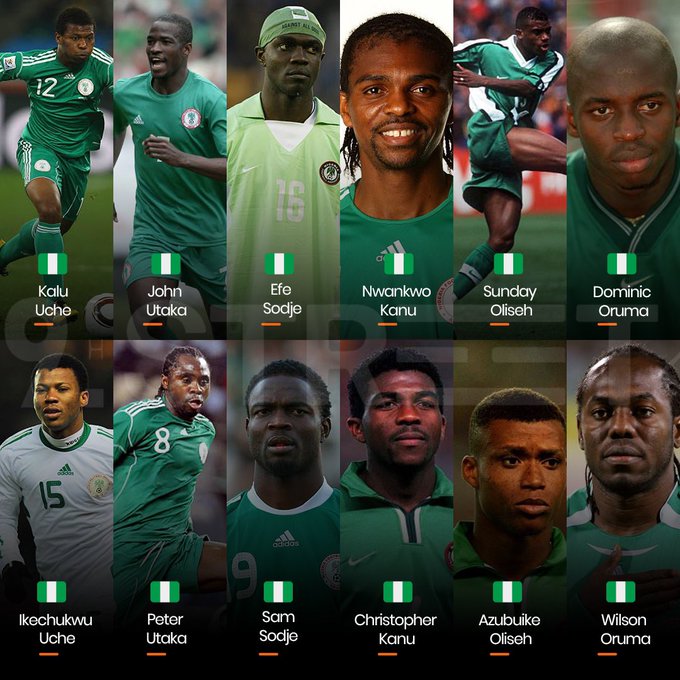
Nigerian football has captivating stories of sibling duos who have significantly impacted the national team. These brothers have made remarkable contributions, leaving an indelible mark on the Super Eagles’ history. Here are some of the most notable pairs:
The Uche Twins: Kalu and Ikechukwu
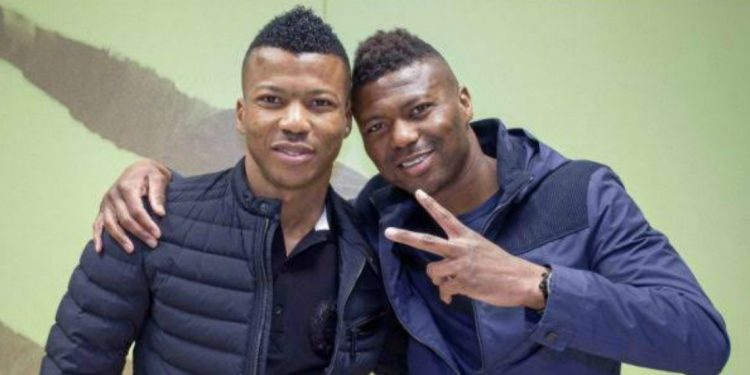
The Uche twins, Kalu and Ikechukwu, are often celebrated as the most talented brothers to have ever played for the Super Eagles. Their synergy and skills were particularly evident in 2009 when they played crucial roles in Nigeria’s qualification for the 2010 World Cup in South Africa and the African Cup of Nations (AFCON) in Angola.
Kalu Uche was the first to earn a call-up to the national team, making a goal-scoring debut against Angola in 2003. His younger brother, Ikechukwu, followed in 2007 and quickly became an essential part of the team.
Ikechukwu Uche enjoyed more success at the national level than his brother, making 49 appearances and scoring 19 goals, which places him among the top scorers in Nigerian history. He was also part of the 2013 AFCON-winning squad.
On the other hand, Kalu made 37 appearances and scored six goals for Nigeria. Despite Kalu missing out on the 2013 AFCON title, the Uche brothers remain revered for their contributions and their thrilling performances on the international stage.
Read: Thursday Throwback: Activities We Loved Growing Up in Nigeria
The Kanu Brothers: Nwankwo and Ogbonnaya
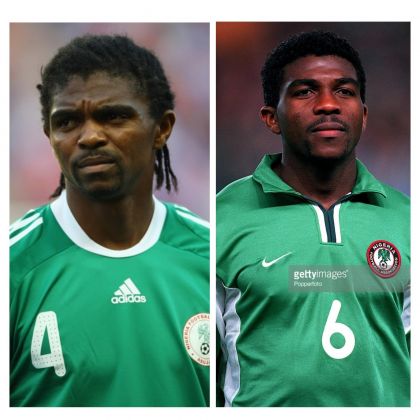
The Kanu brothers are another significant pair in Nigerian football. Nwankwo Kanu, also known as Papilo, is one of the most decorated footballers in the country’s history. Nwankwo’s illustrious career includes 86 caps for Nigeria, numerous awards, and being named African Player of the Year.
His contributions were instrumental in Nigeria’s success in the early 2000s. While not as famous as his elder brother, Ogbonnaya Kanu also made valuable contributions to the national team. He earned three caps and was part of the squad that competed in the 2002 FIFA World Cup in Korea and Japan.
Nwankwo’s fame and achievements overshadow Ogbonnaya’s contributions, but they have left an indelible mark on Nigerian football. Papilo’s legacy is particularly notable, as he remains a beloved figure in the sport, celebrated for his skills, leadership, and the inspiration he provides to young footballers.

The Okocha Brothers: Austin, James, and Emma
The Okocha brothers, Austin, James, and Emma, are well-known names in Nigerian football. Austin “Jay-Jay” Okocha is widely regarded as one of the greatest Nigerian footballers of all time, known for his flair, creativity, and exceptional skill on the ball. His older brother, James, was the first to earn the nickname “Jay-Jay,” which was later passed on to Austin.
James Okocha began his football journey as a toddler and earned his moniker for his impressive skills. Emma, another brother, joined the Super Eagles in the late 1990s, bringing the “Jay-Jay” legacy to the national team. Austin Okocha’s official debut for Nigeria came in 1993, and he quickly became a fan favorite with his outstanding performances. He made 73 international appearances, scored 14 goals, and was a key player in Nigeria’s 1994 AFCON victory and the 1996 Atlanta Olympics gold medal win.
The Utaka Brothers: John and Peter
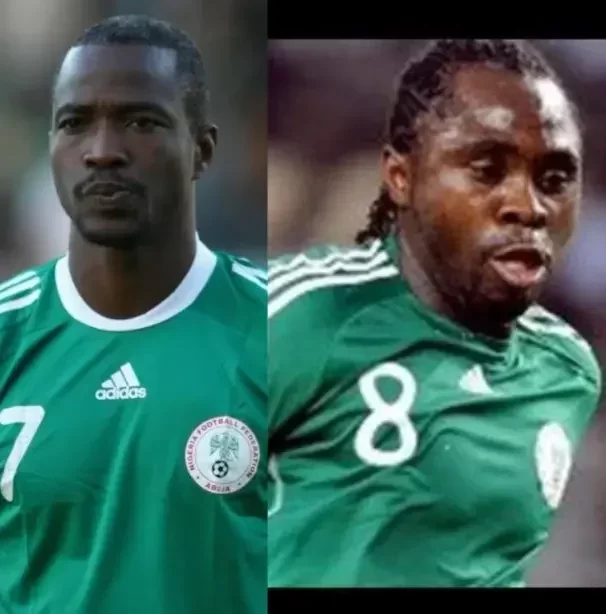
John and Peter Utaka are two more Nigerian brothers who have made their mark on the national team. John Utaka, known for his time with Portsmouth, made 43 appearances for Nigeria and scored six goals. He was part of the squads that competed in the 2002 and 2010 World Cups and the 2006 AFCON. His younger brother, Peter Utaka, earned seven caps and scored three goals for Nigeria.
The Utaka brothers have both contributed significantly to Nigerian football, with John enjoying a more prominent career. Despite Peter’s fewer appearances, his impact during his time with the national team was notable, particularly for his goal-scoring ability.
Read: Nostalgic Adverts from Our Childhood
The Babayaro Brothers: Celestine and Emmanuel

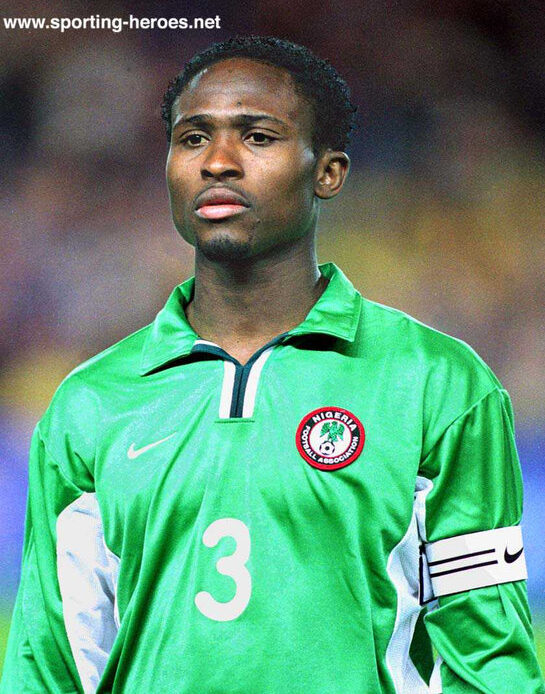
Celestine and Emmanuel Babayaro are another pair of brothers who have made significant contributions to Nigerian football. Both were part of Nigeria’s “Dream Team” that won the Olympic gold medal in Atlanta in 1996. Celestine Babayaro, a talented left-back, and his brother Emmanuel, a goalkeeper, played crucial roles in this historic achievement.
Their success at the Olympics brought immense joy and pride to millions of Nigerian football fans worldwide. The Babayaro brothers’ achievements on the international stage are a testament to their talent and dedication, earning them a special place in the hearts of Nigerian football enthusiasts.
The Oliseh Brothers: Sunday and Azubuike
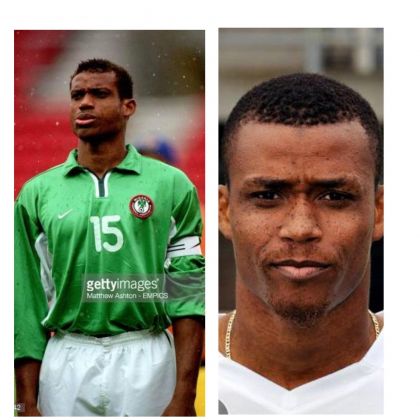
Sunday and Azubuike, the Oliseh brothers, have also significantly impacted Nigerian football. Sunday Oliseh, born on September 14, 1974, is a former defensive midfielder and is widely regarded as one of the best African midfielders ever. He played for top European clubs, including Ajax, Borussia Dortmund, and Juventus. Sunday Oliseh played 63 international matches for Nigeria, scoring three goals, and was part of the 1994 and 1998 FIFA World Cup squads.
He also contributed to Nigeria’s Olympic gold medal win in 1996 and was voted Africa’s third-best footballer in 1998 by CAF. One of his most memorable moments was scoring the winning goal against Spain in the 1998 World Cup with an explosive shot from 25 yards.
Azubuike Oliseh, born November 18, 1978, followed in his brother’s footsteps and made his mark in European football. In the Cypriot First Division, he played for various clubs, including Anderlecht and Ermis Aradippou. Despite not achieving the same level of fame as his brother, Azubuike’s contributions to football, along with his brothers Egutu and Churchill and his nephew Sekou, demonstrate the family’s deep footballing roots and talent.
The stories of these sibling pairs highlight the rich tapestry of Nigerian football and the unique bond that drives brothers to excel on the international stage. From the Uche twins’ thrilling performances to Nwankwo Kanu’s legendary status, the contributions of these brothers have left an indelible mark on the history of Nigerian football.
Their legacies continue to inspire future generations of footballers, proving that the spirit of brotherhood can lead to extraordinary sports achievements.
